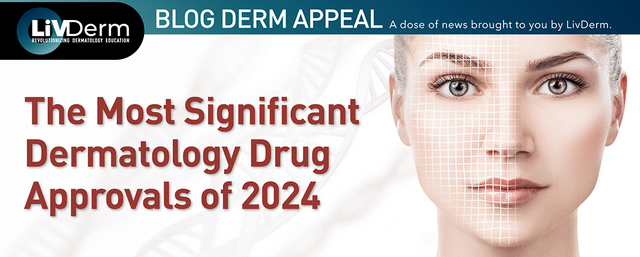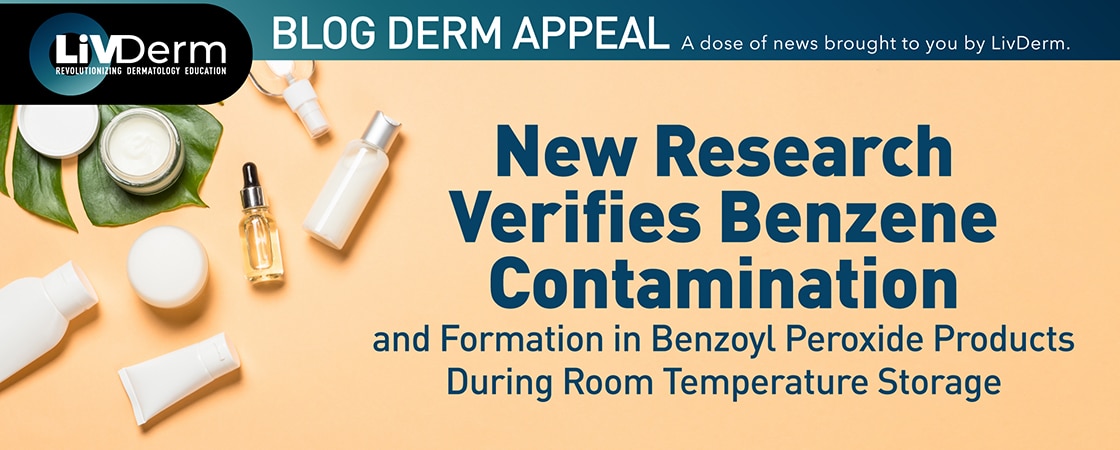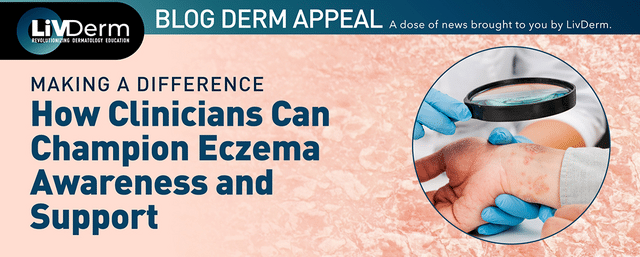Eczema, often referred to as atopic dermatitis, can make the skin dry and itchy—but there are certain factors that separate typical dry skin from this irritating chronic condition.
While there are times when it is normal for anyone’s skin to feel extremely dry, Cynthia Bailey, M.D., a diplomate of the American Board of Dermatology and founder of Dr. Bailey Skin Care, notes several things that differentiate eczema: cold, windy weather, in addition to dehydration and lack of moisturizer, often yield dry skin—while eczema can make the skin overreact to these triggers, or become dry and inflamed for seemingly no reason. This reaction ultimately comes down to the skin’s protective barrier.
Eczema occurs because of a skin barrier dysfunction that makes the top layer of skin unable to properly retain moisture, and therefore incapable of protecting from things like irritants, allergens, and environmental elements, according to the Mayo Clinic. This can result in inflammation that leads to dry, irritated skin, says Joshua Zeichner, M.D., New York City-based and board-certified dermatologist.
Yet how can we tell the difference between “regular” dry skin, and the type that might be due to eczema?
1. Eczema is not solely about dryness; it typically comes with an itchy, red, or otherwise discolored rash.
If the skin is dry, it will likely be itchy at some point—but itchiness from eczema, depending on its severity, can be intense and constant, particularly when attempting to sleep (Dr. Bailey explains that there is less to distract us from the itching sensation when trying to sleep).
The itching may also be accompanied with a rash of red or brown patches in a few key areas of your body, often on the hands, feet, ankles, wrists, neck, upper chest, eyelids, and inside the bends of your elbows and knees. Eczema also sometimes results in small, raised bumps that itch, then weep fluid and crust over when you scratch them.
While it may be difficult not to attack the eczema with nails, “scratching tends to only make it worse,” says Holly Gunn, M.D., an assistant professor of dermatology at the University of Alabama at Birmingham. Instead, doctors can advise which anti-itch creams may be beneficial for eczema. The Mayo Clinic may be a prescription corticosteroid cream to combat inflammation, or an over-the-counter hydrocortisone cream.
2. With eczema, the skin may go through alternating periods of calm and upset based on various triggers.
Eczema is a chronic condition, but different things can exacerbate it. Because eczema is associated with health issues like asthma and hay fever, all three conditions have similar triggers like pollen, mold, dust mites, pet dander, cold and dry air, having a cold, being exposed to irritating chemicals or fabrics, stress, and fragrances.
Some other factors can also make eczema worse, like taking a long, steaming-hot shower and not moisturizing skin well afterwards, according to the National Institute of Allergy and Infectious Diseases (NIAID). While that may make anyone’s skin feel tight and uncomfortable, people with eczema can experience a serious symptom flare-up due to their frail skin barriers, Dr. Bailey says.
Eczema symptoms can also be worsened by using certain soaps in the shower, or when washing hands. This is generally because fragrant, antibacterial, or otherwise harsh products can wash away too much of the skin’s natural moisture, according to the Mayo Clinic.
Joshua Zeichner, M.D., a New York City-based board-certified dermatologist, suggests reaching for gentle soaps and shampoos if skin is easily irritated—whether or not you have eczema—primarily ones that have as few fragrances, alcohols, and dyes as possible.
3. Note if moisturizers do not quench the skin’s thirst as well as they should.
Creams, ointments, and lotions help seal moisture into your skin, making it less dry in the process, the Mayo Clinic explains. But if you have eczema, skin irritation, dryness, and itching can still persist even after using your garden-variety moisturizer, says Gary Goldenberg, M.D., assistant clinical professor of dermatology at the Icahn School of Medicine at Mount Sinai.
That does not mean skipping this step if you have eczema; your skin actually requires the moisture even more. The NIAID suggests moisturizing the skin two to three times a day with heavy ointments like petroleum jelly. Much like soap, moisturizers should be free of alcohol, scents, dyes, and other skin-irritating chemicals. Those with eczema may consider getting a humidifier to retain more moisture in the air at home.
Whether you know you have eczema, or simply suspect you have the skin condition, it is important to meet with a dermatologist to create an individualized treatment plan, says Dr. Gunn. While there is no definitive cure for eczema, there are many treatments that can keep dry skin and itchiness at bay.
SOURCES
https://www.mayoclinic.org/diseases-conditions/atopic-dermatitis-eczema/symptoms-causes/syc-20353273
https://www.niaid.nih.gov/diseases-conditions/eczema-treatment
https://www.self.com/story/scalp-eczema-facts
https://www.self.com/story/dry-skin-eczema
















